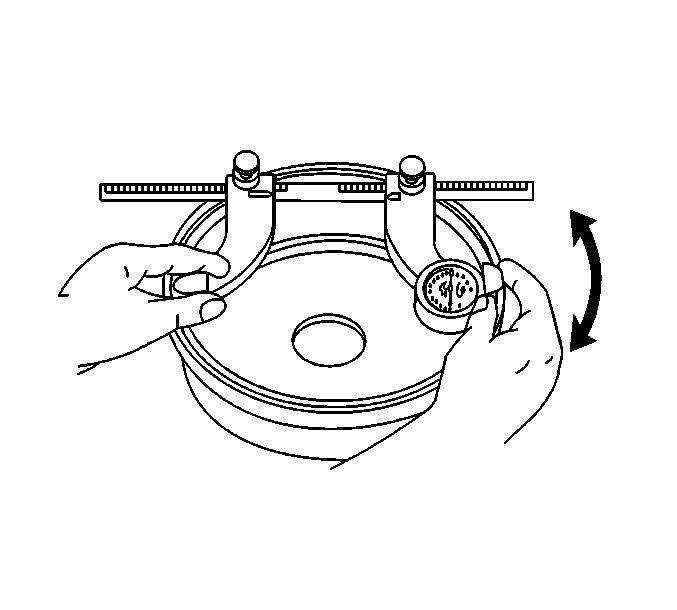Tools Required:
J 8001 Dial Indicator,
or equivalent
- With the brake drum removed, clean the braking (friction) surface
of the brake drum with denatured alcohol or an equivalent approved brake cleaner.
- Inspect the braking surface of the brake drum for the following
Braking Surface Conditions:
| • | Heavy rust and/or pitting |
| • | Light surface rust can be removed with an abrasive disc; heavy surface
rust and/or pitting must be removed by refinishing the drum. |
| • | Cracks and/or heat spots |
| • | Excessive blueing discoloration |
| • | Missing balance weights |
- If the braking surface of the brake drum exhibits one or more
of the Braking Surface Conditions, the drum requires refinishing or replacement.

- Using a brake drum micrometer
calibrated in thousands of an inch, measure and record any grooves present
on the drum braking surface.
Ensure that the measurements are only taken within the brake shoe lining
contact area.
- Compare the groove (scoring) depth recorded to the following specification:
Specification
Brake drum maximum allowable scoring 1.5 mm (0.06 in).
- If the brake drum scoring depth exceeds the specification, or
if an excessive amount of scoring is present, the drum requires refinishing
or replacement.
- Mount the brake drum on a brake lathe.
- Mount a dial indicator, J 8001
or equivalent, and position the indicator button so it contacts
the braking surface of the brake drum at a 90 degree angle, approximately
19 mm (0.75 in) from the drum's outer edge.
- Measure and record the radial runout of the brake drum.
| 9.1. | Rotate the drum until the lowest reading is displayed on the indicator
dial, then zero the dial. |
| 9.2. | Rotate the drum until the highest reading is displayed on the
dial. |
- Compare the radial runout of the brake drum to the following specification:
Specification
Brake drum maximum allowable radial runout 0.15 mm (0.006 in).
- If the brake drum radial runout exceeds the specification, the
drum requires refinishing or replacement.

